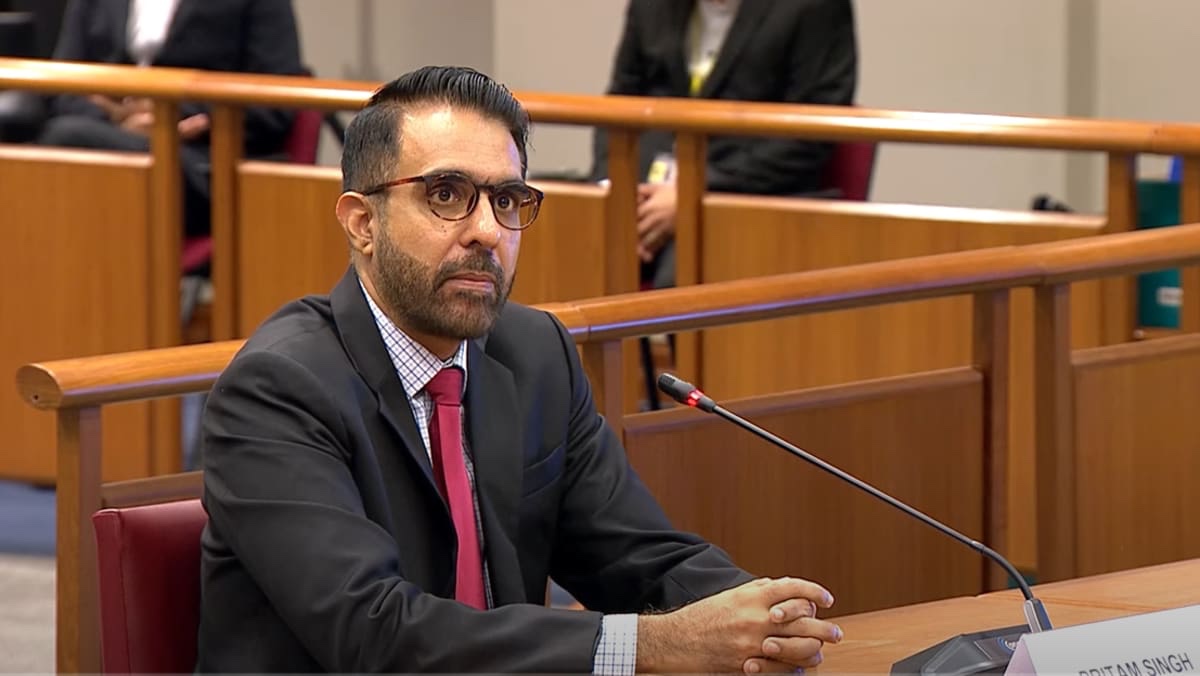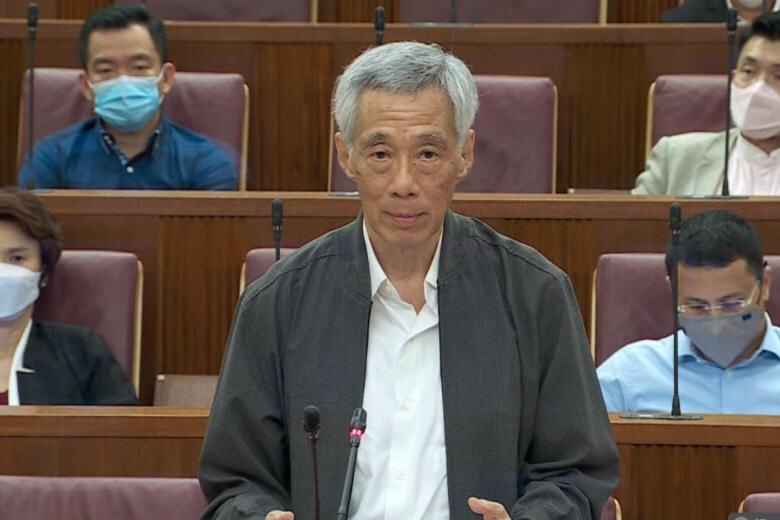LHL Uses His Coercive Control of Parliament and the AG to Get Rid of Opposition He Doesn’t Like to Replace Them with People Like Him Just As His Dad Did With JBJ




I want today to talk about the extraordinary saga that is taking place with regard to the Committee of Privileges and its recommendation that Pritam Singh and Faisal Manap be referred to the DPP for possible prosecution for perjury and obstruction of the work of the Committee of Privileges. Today the Government has used its one-sided dominance of Parliament to get the COP’s report accepted and Pritam and Faisal referred to the AG for almost certain prosecution. I needn’t remind anyone that unlike the AG in other Westminster-style systems, the AG in Singapore is not independent and does the bidding of the PM. In fact LHL appointed his own personal lawyer, Lucien Wong, to be the AG. Nowhere was the AG more clearly demonstrated to be an instrument of the PM’s will than in the fraudulent prosecution of JBJ which continued until LKY got a judge to give him the result he wanted and which was later found by a higher court to be a grievous miscarriage of justice and that JBJ was innocent of all the charges laid against him.
But should Rasesah Khan have ever been referred to the Committee of Privileges in the first place?
And should the COP have exercised its power to fine Raesah and refer Pritam and Faisal Manap to the AG for prosecution while mysteriously letting Sylvia Lim off the hook, though she may be punished later by the COP.
A couple of days ago I put out a statement on behalf of the Reform Party which said:
Notwithstanding we are deeply concerned by these developments. Singapore’s Parliament (Privileges, Immunities and Powers) Act 1962 states in its preamble that Parliament’s privileges, immunities and powers are to be the same as those of the Commons House of Parliament of the United Kingdom. However the UK Parliament has not fined any of its members since 1666 and no one has ever been referred by Parliament under the Perjury Act for prosecution by the courts.
Speech in the UK Parliament has been protected by Article IX of the Bill of Rights 1688 which was passed after the Glorious Revolution of the same year which ended the claims of the UK king to be able to rule as an absolute monarch and established the principle of Parliamentary sovereignty. Article IX states:
“That the Freedome of Speech and Debates or Proceedings in Parlyament ought not to be impeached or questioned in any Court or Place out of Parlyament”
That means that MPs enjoy immunity from action being taken against them, whether criminal or civil, for any words uttered in Parliament. During my father’s brief time as an MP, till LKY removed him through a fraudulent conviction that a higher court ordered to be set aside, he was threatened with a defamation suit by the late S R Nathan, before he was appointed President, for asking what qualifications Nathan had to be appointed as head of SPH other than being former head of the ISD and before that an interpreter working for the Japanese military police, the Kempeitei. Nathan asked JBJ to repeat the allegations outside Parliament so he could sue my father but he declined to do so, relying on the absolute protection afforded to freedom of speech by parliamentary privilege. Since then a UK case (Makudie v Treisman) has established that the repetition of words outside Parliament by the member would also be covered by privilege provided it was in the public interest and their purpose in speaking was the same on both occasions.
To quote from Erskine May (the UK parliamentary reference work):
The conclusions of the Select Committee on Parliamentary Privilege of 1967–68,6 and the recommendations of the Privileges Committee in 1976–777 (the latter agreed to by the House)8established the contemporary frame of reference for the House’s exercise of its penal jurisdiction. In general, the House exercises such jurisdiction in any event as sparingly as possible and only when satisfied that to do so is essential in order to provide reasonable protection for the House, its Members or its officers from such improper obstruction or attempt at or threat of obstruction causing, or likely to cause, substantial interference with the performance of their respective functions
Despite having the same penal powers as the Singapore Parliament, the UK House of Commons has not used them since 1666, in contrast to Singapore, which during JBJ’s time, frequently fined him substantial amounts but not surprisingly has never fined a PAP MP.
Given the absolute privilege accorded to members’ speeches and the way the UK House of Commons “exercises its jurisdiction as sparingly as possible and only when satisfied that to do so is essential to provide reasonable protection for the House, its Members or its officers” , Raesah Khan should never have been reported to the Committee of Privileges and fined, particularly as the lie she told is understandable in the context of her desire to keep her history of sexual assault from her family. Unfortunately Pritam Singh, Sylvia Lim and Faisal Manap fell into the PAP’s trap by throwing Raesah under the bus and forcing her to resign. By doing so they admitted that her lie was a very
The UK House of Commons also has the power to direct the Attorney General to prosecute a witness who lies under oath before a committee of the House. Witnesses have been admonished for lying but Parliament has not directed the AG to prosecute a witness since the Perjury Act of 1911 formally codified the House’s power. Normally a UK Parliamentary committee would not require witnesses to take an oath unless it was acting in a judicial capacity and in fact making civil servants take oaths when they are acting on behalf of Ministers has been severely criticised as oppressive. In Singapore anyone who lies under oath to a committee can be prosecuted under the Parliament (Privileges, Immunities and Powers) Act.The reluctance of the UK House of Commons to use its penal powers because of fears that it would be oppressive and illiberal stands in stark contrast with Singapore where the PAP under both LKY and his son have found them a useful tool to further their aim of preserving the PAP’s hegemony and preventing the emergence of a real threat from the Opposition. While Pritam is not in the same league as JBJ he is still surprisingly clearly perceived as an emergent threat. Raesah’s unfortunate use of an untruth to cover her understandable reluctance to disclose her own experience as a sexual assault survivor coupled with Pritam’s and Sylvia’s ill-judged initial decision to keep quiet and not get Raesah to come clean immediately has played into LHL’s hands. But in the UK and other democratic countries that follow the Westminster system Raesah would never have been fined nor would the Leader of the Opposition be facing prosecution from an AG that is under the control of the PM who also appoints the judges. LHL might try to disguise this in Parliament as being about honesty and integrity but from a man who refuses to disclose how many hundreds of millions he has paid his wife his words are hypocritical. Nothing has changed from JBJ’s day and LHL is as ruthless and just as prepared to misuse the coercive power of Parliament and the courts in order to destroy his opponents.
The puzzle remains why he would go to such lengths to get rid of Pritam Singh and bring back his dad’s old friend Low Thia Kiang, whom he praised in Parliament yesterday when Pritam is no JBJ and his mild mannered criticism of the Government could be likened to “being savaged by a dead sheep” (as the late Dennis Healey, former Labour Chancellor of the Exchequer described his Conservative colleague Geoffrey Howe). Perhaps LHL is just a racist, like his father, and cannot stand seeing an Indian as Leader of the Opposition.



Off course that BASTARD IS RACIST AS HIS FATHER THE BIGGEST BASTARD
LikeLiked by 1 person
LHL appears to be someone who is clearly unfit to continue as PM of Singapore.
LikeLiked by 1 person